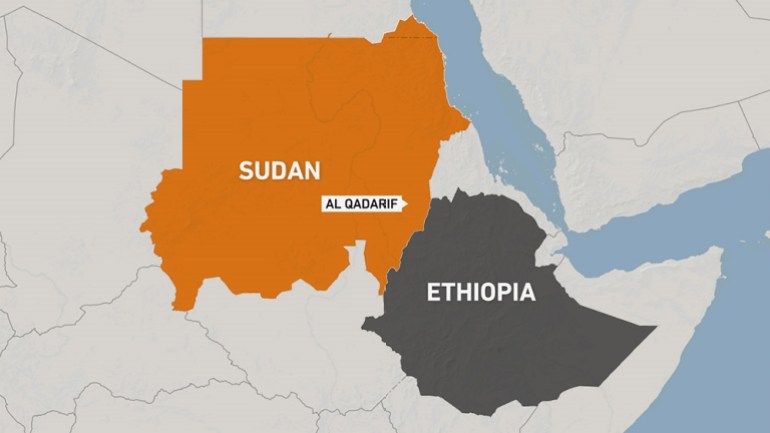Sudan denies occupying Ethiopian territory in contested region
Foreign Ministry spokesman tells Al Jazeera its troops redeployed on the Sudanese side of the border with Ethiopia.

Sudan has denied claims by Ethiopia of occupying its territory, in the latest dispute over the contested al-Fashqa area.
Sudanese Foreign Ministry spokesman Mansour Boulad said on Wednesday the Sudanese army had redeployed its forces in the border area with Ethiopia, and did not go beyond the Sudanese territory.
Keep reading
list of 2 itemsEthiopia warns Sudan over military build-up amid border tensions
In an exclusive interview with Al Jazeera Mubasher on Wednesday, Boulad said claims by Ethiopian Foreign Ministry spokesman Dina Mufti of Sudan occupying Ethiopian lands “are not true”.
“Our choice so far is that we must deal with the situation according to the mechanisms of good neighbourliness and cooperation between the two countries, but if Ethiopia does the opposite, we will have another position according to the circumstances,” he said.
The exact boundary of al-Fashqa – where the northwest of Ethiopia’s Amhara region meets Sudan’s breadbasket Gadarif state – is rarely delineated on the ground.
According to the colonial-era treaties of 1902 and 1907, the international boundary runs to the east.
This means that the land belongs to Sudan – but Ethiopians had settled in the area and were cultivating there and paying their taxes to Ethiopian authorities.
In 2008, the two governments settled on a compromise, which resulted in Ethiopia acknowledged the legal boundary, but Sudan allowing the Ethiopians to continue living there undisturbed.
Ethiopia committed to ‘peaceful resolution’
In late December, Sudanese soldiers reportedly moved up to 40km (25 miles) into Ethiopian-held territories, including the contested fertile agricultural region of al-Fashqa.
Ethiopia says Sudan took advantage of its forces being distracted by the Tigray conflict to occupy Ethiopian land and loot properties.
It then launched a diplomatic effort to get Sudanese forces out of the territories to promote a return to the normal mechanisms of dialogue to resolve the century-long border dispute.
“Ethiopia is committed to a peaceful resolution of the border differences with Sudan,” Dina Mufti said in a press statement on Tuesday.
Any possibility of mediation would require Sudan to pull its forces to positions prior to late December, when Ethiopia first signalled a breach of its borders, he added.
“We have had mechanisms, technical and political committees,” he said, adding that the two countries need to get back to those resolution mechanisms through dialogue.
Asked how long Ethiopia would maintain a diplomatic stance while Sudan remains in the contested territories, Mufti said: “We will cross that river when we come to it.”
Sudanese military leaders have not shown any sign of heeding Ethiopia’s call, though, and reiterate they reclaimed their own territories.
